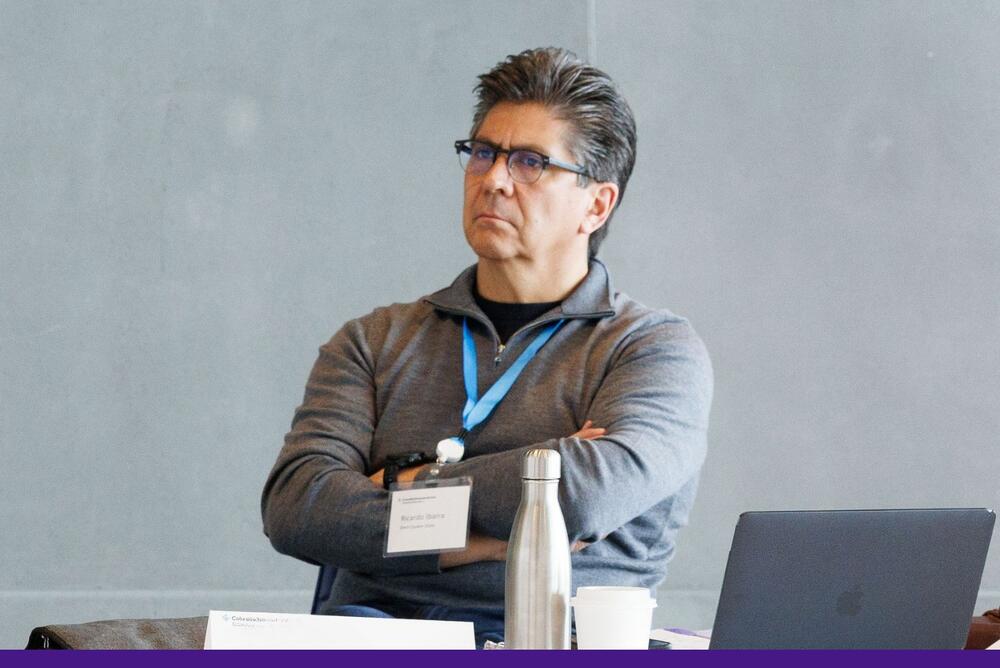
Ricardo Ibarra on Future-Proofing Organizations with Strategic Value Creation
- What inspired you to enroll in the Strategic Value Creation program?
- What specific challenges were you hoping to address and how did the program help?
- What insights would you take from this program?
- What was it like learning from Professor Shiva Rajgopal? How did his teaching style influence your learning?
- What advice would you give to other professionals considering this program?
- How would you describe the impact of the program on your strategic thinking and leadership approach?
- What advice would you give to other professionals considering this program?
- Upcoming Programs: Corporate Governance
Q&A with Ricardo Ibarra
Ricardo Ibarra, CEO of Shell & Quaker State Mexico & Caribbean, is a senior executive and educator with over 35 years of leadership experience across the fast-moving consumer goods and industrial sectors. He has held top-level positions at global companies including Unilever, Mattel, and BIC, where he led regional and international operations focusing on strategic growth, commercial transformation, and innovation.
At Mattel, Ricardo served as President and CEO for Southern Cone and Brazil, later advancing to Global Commercial Officer for the MEGA division. He also led BIC Latin America as President and CEO, overseeing operations across key markets. Today, he combines his corporate leadership with academic impact, as a marketing and strategic planning professor at ITAM, his alma mater.
Ricardo participated in our Strategic Value Creation program to sharpen his approach to long-term planning and value creation. We sat down with him to learn how the program influenced his thinking on strategy, governance, and sustainable business leadership.

What inspired you to enroll in the Strategic Value Creation program?
I enrolled in the Strategic Value Creation: Transform Strategy Into Sustainable Advantage program because I firmly believe that developing a sound, forward-looking strategy is one of the most critical responsibilities of a CEO. In today’s fast-paced business environment, executive leaders often find themselves absorbed in daily operations. However, it is essential to step back from routine tasks and focus on envisioning where the company should be heading and how to achieve long-term objectives. For me, strategy is not just a plan—it’s the foundation for sustained corporate success and impactful governance.
What specific challenges were you hoping to address and how did the program help?
One of the core challenges in managing complex organizations is understanding exactly where value is generated—and, as a result, determining where to allocate resources to maximize ROI. This program provided the tools and frameworks needed to conduct rigorous, detailed profit and loss (P&L) analysis. These exercises helped me isolate and understand the true value drivers of the business. By sharpening this analytical lens, I now feel better equipped to make data-informed decisions that align with long-term business strategy and stakeholder value.
What insights would you take from this program?
A powerful takeaway was a recurring theme in the program:
“Never forget that projected numbers and analysis are assumptions, not realities that will unfold exactly as planned.”
This insight is especially important when developing strategic or annual plans. Too often, future initiatives are presented as certainties when, in truth, many variables can affect their outcomes. The key question is: how can we build analyses that not only present a compelling vision of the future but also account for inevitable changes and uncertainties?
The program challenged me to reframe planning from being purely forecast-driven to being adaptive and resilient. That shift is essential for effective strategic value creation and strong corporate governance.
What was it like learning from Professor Shiva Rajgopal? How did his teaching style influence your learning?
Professor Shiva Rajgopal brought a rare combination of academic rigor and real-world relevance to the classroom. His approach is structured, yet dynamic, and he encourages deep engagement from participants. I appreciated how he fostered collaboration and facilitated discussions that drew on the diverse experiences of professionals from different industries and regions. The interactive learning environment enriched the program and provided perspectives that were immediately applicable to my work as a CEO and board member.
What advice would you give to other professionals considering this program?
If you are leading an organization or managing a function where strategic planning and value creation are core to your role, I highly recommend enrolling in this program. It offers a strong foundation in financial analysis, governance principles, and long-term value thinking. Whether you're a C-suite executive or an emerging leader, this program equips you with the tools to strengthen your organization’s strategic direction and drive sustainable business outcomes.
Contact Us
If you have questions about the program or are interested in enrolling or sponsoring someone in your organization, please don’t hesitate to contact Christine Tom at christine.tom@gsb.columbia.edu or +1 212-851-2505.
Upcoming Programs: Corporate Governance
Sign Up for Email Alerts
Sign up for program updates and content relevant to today's business leaders from Columbia Business School Executive Education.
